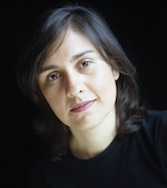Home Fire
|
|
Kamila Shamsie’s Home Fire is a post-9/11 Antigone. This is signalled by the novel’s epigraph from Seamus Heaney’s 2004 translation of Socrates’ lines: ‘The ones we love . . . are enemies of the state’. Heaney’s tyrant king goes on to declare: ‘Whoever isn’t for us/ Is against us’. The Irish poet brought new meaning to Antigone in light of the Bush slogan ‘You’re either with us or you’re with the terrorists’. Shamsie adds fresh layers in her reconsideration of the classic play. Exploring the issue of European Muslims joining ISIS and on return being denied citizenship, she poses big questions about assimilation, difference, and justice. Home is Home Fire is set in five locations—London, England; Amherst, Massachusetts; Istanbul; Raqqa, Syria; and Karachi. Similarly, the novel’s structure echoes the five acts of much Western drama. Each substantial chapter is told from the perspective of a major character: a devoted sibling in her late 20s called Isma; the man she has a crush on, Pakistani-Irish Brit Eamonn/Ayman; Isma’s wayward younger brother Parvaiz; her sister and Parvaiz’s twin Aneeka; and Eamonn’s politician father Karamat. Despite its global sweep, this is easily Shamsie’s most British novel to date, with much action taking place on and around Preston Road in Alperton. The author recently shared that after the EU referendum she started using the pronouns ‘we’ and ‘us’ about the British for the first time in her life. The disaster of Brexit reportedly made her feel at home, chiming with the violent political disarray of her homeland, Pakistan. Indeed, home is a primary trope, indicated by the title’s allusion to the First World War song ‘Keep the Home Fires Burning’. Ivor Novello’s lyrics exhort women left behind to keep up their houses and their spirits despite justifiable fears for soldier men-folk. Shamsie transposes ideas from the Great War (having explored the conflict’s Indian soldiers in her previous novel A God in Every Stone) and from Socrates’ classical battles onto current preoccupations regarding jihad, securitisation, and torture. Home for Isma is lower middle-class suburbia near Wembley. By contrast, privileged Eamonn was brought up in an affluent area of Kensington and Chelsea—where his father Karamat still lives, having put a deprived upbringing in Bradford behind him. Drifting between jobs, Eamonn can still afford to inhabit a flat in on-trend Notting Hill, paid for by his powerful parent. Like Karamat before her, Isma tries to escape her household’s impoverishment. Long ago her terrorist father abandoned his family, and the mother’s later death left 19-year-old Isma to raise her prepubescent twin siblings. Now that the twins are adults, Isma departs for Amherst to write a doctoral thesis. Ironically, given her specialism in Sociology, she misses her planned flight after an aggressive search at Heathrow airport sparked by her hijab and the father’s reputation. Eventually reaching America, Isma welcomes that the studio apartment she rents is “a home that made no demands”. Meanwhile Parvaiz experiences a crisis of masculinity caused in part by his twin Aneeka’s increasing aloofness from the family home. Amid the video-game violence and simplistic Islamist slogans blaring in fellow British Muslim Farooq’s hypermasculine flat, Parvaiz is persuaded to break from his sisters. He becomes radicalised and eventually vanishes into the headlines in Raqqa. The rest of the novel traces Aneeka’s increasingly desperate, even unhinged attempts to get her brother to come home. Aneeka is blocked at every turn by Home Secretary Karamat who believes that those who “set themselves apart” from British society deserve to be “treated differently” and denied a homeland. Shamsie’s portrayal of Parvaiz’s descent into violent extremism and subsequent buyer’s remorse is highly convincing. Gayatri Spivak argues that we must “listen to the other as if it were a self, neither to punish nor to acquit”—even when that other is a terrorist. And listening is exactly what Shamsie does, recording Parvaiz’s complaints about having been stopped and searched for Islamophobic reasons by British police officers. Shamsie also puts the sadomasochistic relationship between Parvaiz and Farooq almost within readers’ earshot. Aural map A subtle homoeroticism seemingly contributes to Parvaiz’s swift acceptance of Farooq’s misinformation about the impressive welfare state ISIS has created in Raqqa. Yet Parvaiz will discover that the reality in this north Syrian city is stark inequality and brutal cruelty. In Raqqa, Parvaiz works as a sound man, making the kind of propaganda videos that had hailed him so effectively in Farooq’s flat. Absorbed in his labour, “nothing but getting the sound right mattered. The fascination of discovering the different pitch and timbre of a nail through flesh”. Accordingly, this book is all about hearing and being heard, providing an ‘aural map’ for navigating multifarious contemporary voices, along the way enveloping its audience in rich soundscapes. From an eerie music created by icicles in the chill of Hampshire County to the playlists enjoyed by the young siblings, Shamsie painstakingly minutes her characters’ sonic agenda items. Returning to Spivak, who famously asked whether the subaltern could speak, this novel asks: can the oppressor listen? In this post-Brexit, Trumpian world of Internet trolling, Facebook echo chambers, and fake news, the answer seems to be no. Yet Shamsie trains a sharp ear to this social media cacophony, deploying the e-epistolary form to detail trending Twitter hashtags, online news articles shared, and WhatsApp conversations. Her ‘home truths’ not only deserve a hearing but should be played on repeat in Britain’s Houses of Parliament. Claire Chambers | 5 Aug 2015 | The Hindu
|


